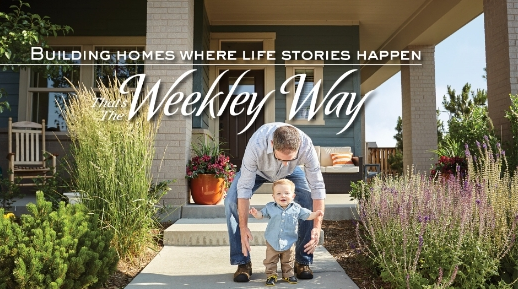Published April 10, 2024
Choosing Between Older Houses vs. New Homes
Among the many paths you’ll consider in your homebuying journey is the choice between an older resale home or a new construction home. Buying your home is a significant financial and lifestyle decision, which merits careful thought, research and planning. In this article, we’ll explore the pros and cons of both options to help you make an informed decision.
The choice of a new or used home is ultimately a matter of preference and necessity. Along with location, housing needs and price, a home’s age and state of livability will play a major role in both your immediate homebuying and long-term homeownership experiences.
Selection and Availability of New Homes vs. Older Homes
Both new construction and existing homes offer unique advantages and disadvantages concerning the Homebuyer's ability to find available homes, choose the right fit and select design details.
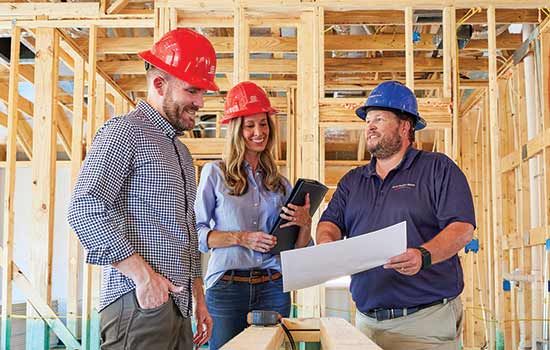
Selection
Homebuyers can work with a builder to create a home that aligns with their vision from the moment they open the front door. Home builders sometimes offer Homebuyers the opportunity to personalize the design and finishes of homes being built from the ground up. In these situations, Homebuyers may select everything from the floor plan and exterior design to cabinetry and flooring.
However, this isn’t always an option, even when building a new home. There may be other avenues of personalization to explore when full customization isn’t an option, such as a menu of pre-matched design combinations. Additionally, a home builder dedicated to Customer Service may offer upcoming homes that will be outfitted with design styles that match what you’re looking for.
In general, having a home built from the ground up affords the greatest opportunity for personalization, sometimes even allowing the Homebuyer to select which homesite they want their home to be built on.
With existing homes, personalization will be an after-the-fact consideration. Homebuyers will either have to live with the previous resident’s style and slowly adapt the home to suit their own style over time or delay moving in until after a big overhaul.
Many Homebuyers enjoy remaking an older home to suit their purposes, either with the DIY approach popularized on reality television or by coordinating teams of professionals to come in and personalize the various elements of a home to match their vision. Neither option is especially easy, but it can be a rewarding option for skilled, dedicated and patient Homebuyers.
With both new construction homes and existing homes, Homebuyers should expect changes and personalization to be accompanied by increased cost. Both the choice of upgraded new construction fixtures and the replacement of outdated fixtures in an older home will add expense beyond the home’s original price tag. It’s important to budget accordingly.
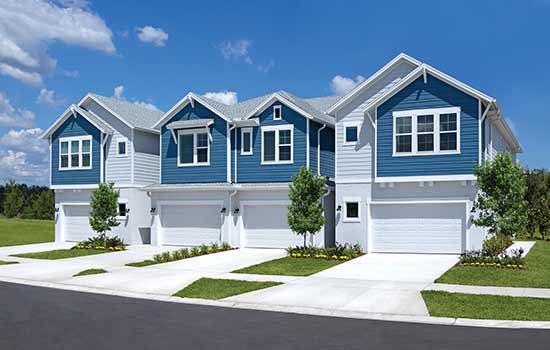
Availability
Existing homes become available based on the needs of the home seller. This means that the availability of older homes can be sporadic and unpredictable. If your home purchase doesn’t need to adhere to a schedule, this can be a viable option.
It is always possible that a home will be available in the right location, at the right time and at the right price. Failing that, buyers of older homes will likely need to compromise on the part of choosing a home that matters the most: the home, itself.
On the other side of things, home builders operate on a schedule. Home builders are constructing new homes on a schedule that attempts to anticipate the needs of Homebuyers, with new homes being constructed at a regular pace and with a greater level of dependability than what you can find on the existing home market.
This means you may be able to coordinate with a home builder to have a new home ready for move-in when you need it to be. There can also be delays in home construction, but a builder committed to their Customers will maintain timely communication and make sure their Homebuyers know what to expect every step of the way.
In either case, the key to home availability is timing. The sooner you contact a Real Estate Agent, the more likely they’ll be to find a home that meets your needs. The sooner you’re able to communicate your needs to a home builder, the more likely they are to have a home ready for move-in when you are.
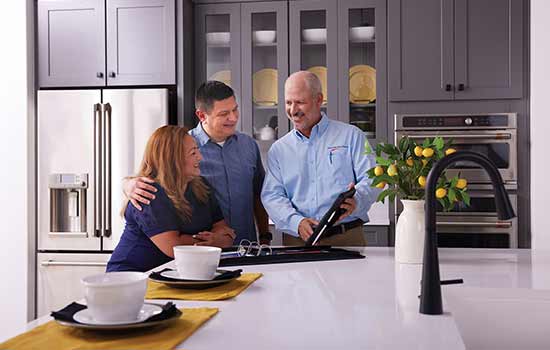
Transaction Reliability: New Homes vs. Existing Homes
When it comes to transaction reliability, there are notable differences between individual home sellers and home builders. When you’re counting on a random Homeowner to complete paperwork and move out of the home you want to buy, there’s a wild variety of things that could go wrong. Similarly, there are many factors that can delay the construction of a home.
Home Builder Reliability
If you work with a reputable home builder, you should be given a thorough outline of the construction timeline and be made aware of the types of things that could cause delays, such as inclement weather and supply chain issues. Top home builders will keep you updated on your home’s progress and communicate any delays as soon as they crop up.
You’re less likely to find this level of communication and candor with home builders that don’t have a strong reputation to uphold. It’s important to choose a builder that values your long-term happiness with your home and building experience.
Reputable home builders will also have a professional grasp of the paperwork involved in the sale of a home and should be able to work with you and a financial institution to make the sale of the home as easy as possible.
Individual Home Seller Reliability
Purchasing an existing home will vary from home to home, rather than from home building company to home building company. Each Homeowner who is selling their home may have their own eccentricities, which can impact the transfer of ownership.
Some existing homes are owned by an investor and kept unoccupied with the paperwork ready to go. In other instances, you may have to wait for the previous Homeowner or their renters to move out before you can take ownership and move into the home. In both cases, the move-in readiness of the home can come into question and may require changes to the purchase agreement.
When purchasing an older home, paying an experienced Real Estate Agent can help in navigating potential trouble. They should have experience with the kinds of problems Homebuyers may encounter, such as a home seller failing to fulfill critical paperwork in a timely manner, and know of paths to remedy those problems.
It’s also vital to have a third-party inspector thoroughly inspect the home and report back on their findings to make sure the home you’re purchasing is actually in the condition promised.
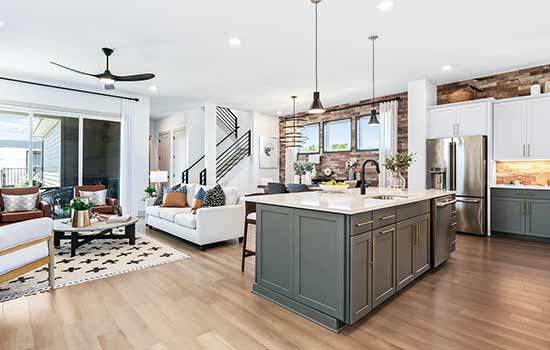
Lifestyle and Livability: Older Homes vs. Newly Built Homes
When it comes to lifestyle and livability, older homes and newer homes offer distinct options. Personal taste reigns supreme in this category, as there is no option objectively better than each Homebuyer’s individual preferences.
Older homes were designed to suit the lifestyles of a bygone time. A central hallway may lead to any number of enclosed, formal rooms. Unexpected angles and colorful patterns may lead to a circular, step-down recessed seating area.
These design features may be classic, stale, retro, outdated, timeless, throwback, cringey, nostalgic, a renovation headache or the exact feature a Homebuyer’s been dreaming of.
In general, older homes are more likely to be built around outdated layouts, defunct features and aging hardware that can be expensive and inconvenient to replace. Open-concept spaces, larger kitchens and flexible living areas are often lacking in older properties, making it challenging to accommodate modern lifestyles.
Home builders are carefully designing and constructing homes with contemporary living in mind, incorporating open floor plans, versatile spaces and layouts that cater to the lifestyles of today’s households. Newer homes tend to be better equipped to accommodate evolving lifestyles and changing needs.
Older homes can also pose a challenge for those looking to stay connected with the latest technologies. Retrofitting a home to accommodate smart home systems, high-speed internet and energy-efficient appliances may require extensive electrical or even structural modifications, which can be costly and disruptive to your day-to-day life. These concerns shouldn’t crop up with a new construction home as long as the home is built by a quality home builder that keeps a Homeowner’s current and future lifestyle in mind.
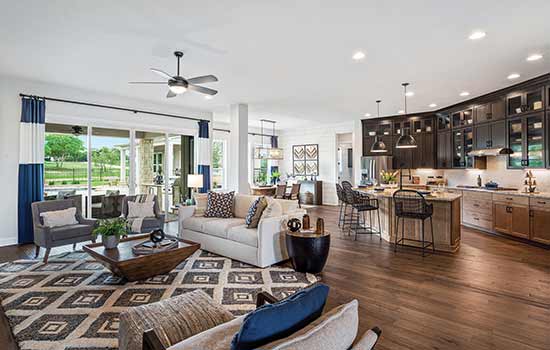
Energy Efficiency: New Construction vs. Older Homes
When it comes to energy efficiency, there is a clear-cut winner: new homes.
As building technologies and energy codes continue to improve, newer homes are designed and constructed with a stronger emphasis on energy conservation and sustainability. While older homes can be retrofitted to improve their energy efficiency, it’s difficult for any amount of home renovation to match the level of energy conservation purposefully crafted into the design of a new construction home.
Windows and Insulation
Older homes typically feature single-pane windows and outdated insulation. This results in homes that leak heat and let in cold air in the winter and allow heat to intrude while conditioned air escapes during the summer. This poor thermal performance can result in higher energy bills and decreased comfort within the home, plus have an adverse environmental impact.
Modern home construction makes use of energy-efficient windows, superior insulation materials and building methods that help maintain an air-tight home. This reduces energy consumption while also improving comfort.
Heating, Ventilation and Air Conditioning (HVAC)
HVAC systems in older homes are often outdated and inefficient and struggle to appropriately distribute conditioned air through the home. This can be a major contributor to higher energy bills and diminished comfort, especially during the warmest and coldest parts of the year.
New construction homes crafted by reputable home builders will feature new, more energy-efficient technology at the heart of the home’s HVAC system. While air conditioning units can easily, though not necessarily cheaply, be replaced in older homes, recent innovations in home construction duct work and ventilation can be difficult or even impossible to add to some older homes. Meanwhile, these superior ventilation systems are often part of the standard design of new homes by top-quality home builders.
There’s much more to the energy efficiency of a home than the topics mentioned here, including the electrical engineering of a home and adapting construction specifics to local climates.
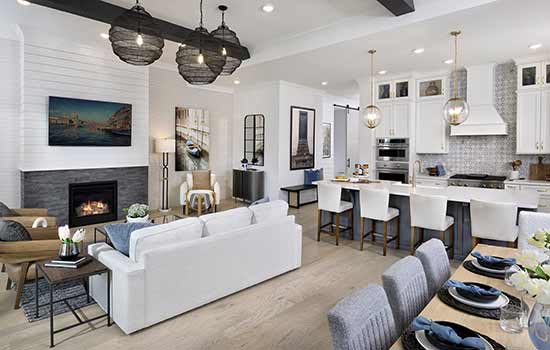
Cost to Own: New vs. Old Homes
Both new and existing homes typically share similar initial expenses: a down payment, monthly mortgage payments, Homeowners insurance and property taxes. On these matters, an older home will tend to cost less than a similar and nearby new construction home. This isn’t always the case, as a well-maintained and updated home holds and grows its value better than a fixer-upper.
But when you look beyond the mortgage and escrow amounts, the story of a home’s cost of ownership gets significantly more complex and can catch under-prepared Homeowners by surprise.
Energy Bills
In the previous section, the topic of energy efficiency was briefly explored. It’s important to mention it again here, as outdated HVAC systems and poor insulation will increase a home’s energy usage. This is one of the more obvious ways in which an older home’s perceived affordability can sneakily undermine a Homebuyer’s finances, as increased energy bills can chip away at the savings expected on the mortgage payments.
Renovations and Upgrades
As mentioned earlier in this article, some Homebuyers are uniquely suited to home DIY projects. For those folks, putting in the money and sweat equity to fix up a tired old house can provide a great source of value and personal fulfillment. For other Homebuyers, wishful thinking can result in a once seemingly affordable home becoming an expensive mistake. It all depends on the individual.
The older the home, the more extensive renovations may be required to meet a Homebuyer’s intended lifestyle goal. Outdated features and aging systems may need to be replaced. These kinds of renovations can be costly, time-consuming and disruptive to daily life, adding to the overall cost of ownership.
In some instances, this can even require Homeowners to find somewhere else to live temporarily while renovations are taking place. This means renting a secondary residence can eat even further into perceived savings beyond the cost of the actual renovations.
Regular Maintenance and Surprise Repairs
As homes age, especially homes not properly cared for, the need for repairs and replacements increases. Older foundations, plumbing, electrical systems, roofing and structural components can lead to significant repair costs. You may be surprised by what a previous Homeowner might have “fixed” with an extra coat of paint.
In addition to the cost of maintenance and repairs, there’s also the matter of finding quality professionals, coordinating a time to have the work done and checking to make sure the work has been done correctly.
New Homes
A new home from a reputable home builder will be significantly more energy efficient and likely won’t require any restyling for many years to come. Homebuyers who purchase a new construction home can expect fewer repair and maintenance issues in the initial years of ownership, and the best home builders include extensive warranties on materials and workmanship, which can take the headache out of unexpected repairs.
You’ll find more information about this matter in the following section.
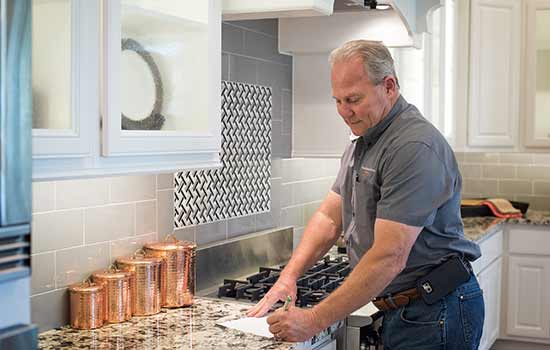
New Home Warranty vs. … Not Having One
When it comes to homeownership, the presence of a warranty program can provide significant peace of mind and protection against unexpected costs. The best home builders include warranties that cover aspects of the property, while owners of older homes often are left to navigate these challenges and expenses on their own. Let's explore the benefits of a new home warranty and the types of inconveniences owners of older homes may face without one.
When home builders care about the quality of their product, the reputation of their brand and the delight of their Customers, they will back up their craftsmanship with a new home warranty. What is covered by the warranty will vary by builder, but industry-leading warranties will include coverage of the home’s foundation, framing and load-bearing components, as well as fine workmanship and carpentry. Such builders will also install appliances with manufacturer warranties.
Not only does a home builder warranty help protect a Homebuyer from unexpected expenses related to repairs, but it should also alleviate some of the inconvenience of scheduling repairs. This is because quality home builders will have Warranty Service Representatives dedicated to providing excellent Customer Service and will make the arrangements for all covered repairs.
The difference between having to arrange and pay for repairs oneself vs. having a friendly expert arrange repairs at no cost can save Homeowners money and improve their day-to-day peace of mind. While no level of Customer Service can be better than not needing a repair in the first place, many Homeowners find exceptional value in the care they receive from their Warranty Service Representative.
Without a warranty program in place, owners of aging homes can find themselves frustrated not just with the expense and inconvenience of arranging repairs, but also dismayed with the process of identifying the cause of some repair needs and finding professionals who will do quality repairs at a reasonable price.
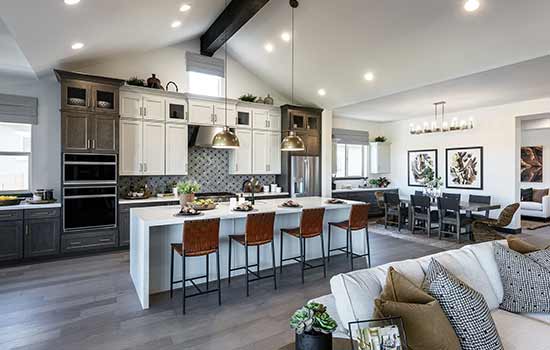
Finding a Reputable, High-Quality Home Builder
After carefully considering your circumstances, if you conclude that a new construction home is the best option for you, your next step is to find a home builder with a strong reputation and a commitment to excellent Customer Service. We’d be honored if you’d trust David Weekley Homes to build your dream home. With more than 45 years of experience, we’ve built over 120,000 homes while focusing on delighting our Customers by providing the best in Design, Choice and Service.
Learn more about our building practices by exploring the David Weekley Difference. When you’re ready to begin exploring available homes and opportunities to build from the ground up, fill out the contact form below and our friendly Internet Advisor will be happy to help you find the best options to suit your lifestyle.











